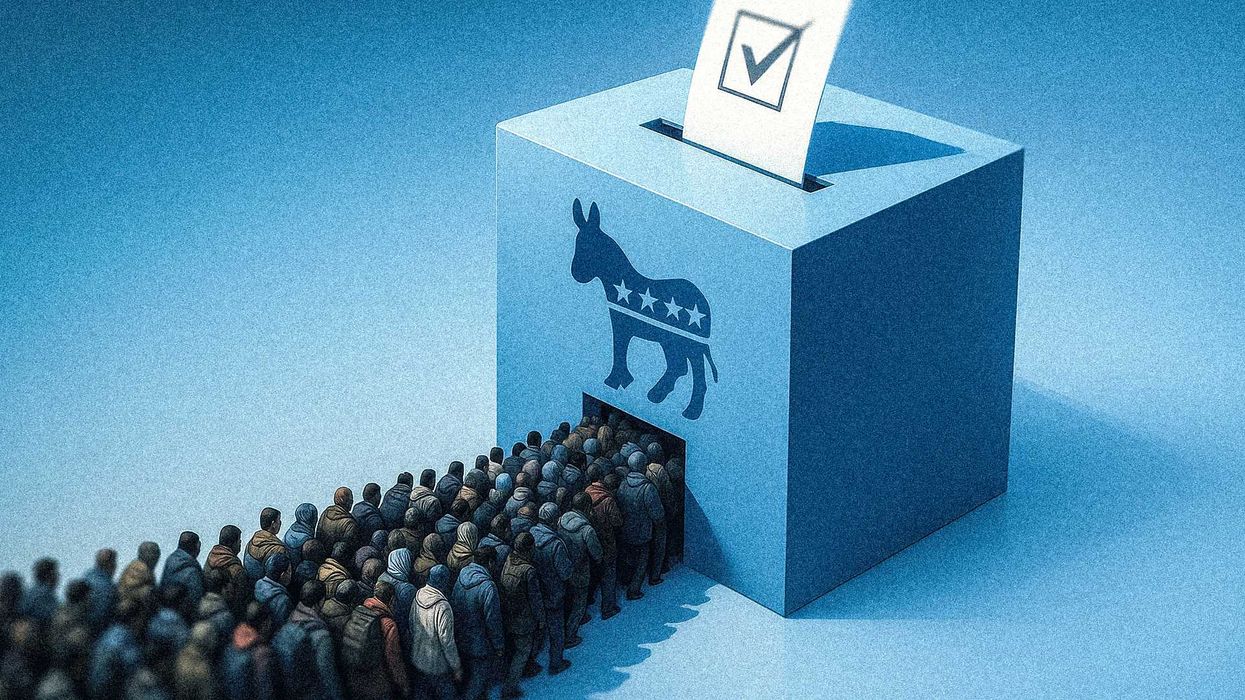
© 2025 Blaze Media LLC. All rights reserved.
"A declining growth trend is inevitable and permanent and is caused by some pretty basic forces."
Noted investor and GMO co-founder Jeremy Grantham in his quarterly letter to clients claims that the U.S. Gross Domestic Product (GDP) growth rate we’ve become accustomed to (rates in excess of three percent) is “gone forever.”
Instead, he argues, real U.S. GDP growth will trend at about 0.9 percent through 2030, eventually falling to 0.4 percent from 2030 to 2050.
"Someday, when the debt is repaid and housing is normal and Europe has settled down, most business people seem to expect a recovery back to America’s old 3.4% a year growth trend, or at least something close," Grantham writes. "They should not hold their breath.”
"A declining growth trend is inevitable and permanent and is caused by some pretty basic forces," he adds.
Among said "basic forces" are changing demographics. For instance, annual working age population growth has fallen:
 GMO
GMO
Average hours worked per year has declined:
 GMO
GMO
And the positive effects of women entering the workforce has plateaued:
 GMO
GMO
"This added about 0.25% a year to work input up until 2000 when the trend ended. The demographic inputs peaked around 1970 at nearly 2% a year growth (there are many ways to do these calculations, each yielding slightly different results)," the famed investor explains.
"They fell to about 1% average growth for the last 30 years and demographic effects are now down to about 0.2% a year increase in man-hours where they are likely to remain until 2050, with possibly a very slight downward bias," he adds.
Another major problem identified in Grantham's letter is declining productivity. Annual growth in Real GDP, for example, is down. Way down:
 GMO
GMO
"It shows that productivity gains were negligible for centuries (as was population growth, for the record). We can see how growth slowly picked up first in the British Agricultural Revolution and then in the Industrial Revolution, rising to a then dizzying 1% growth rate around 1900," he writes.
"With the surge of innovations – steam engines, electricity, telephones, autos, and the full use of the stored energy of coal, oil, and gas – the rate soared to a peak of 2.5% at mid-century. And then it started to decline, with the estimated trend reaching 1.8% in the year 2000," he adds.
Capital spending is down:
 GMO
GMOManufacturing as a share of the U.S. economy has declined:

GMO
And there has been a decline in services productivity:
 GMO
GMOGrantham goes on to argue that restraints on resources brought on by consumption, rising commodity prices, and weather events will further hinder economic growth. Also, via Northwestern University economics professor Robert Gordon, Grantham argues that declining education, income inequality, globalization, and debt overhang will also help to retard growth.
Now some may look at Grantham’s predictions and wonder why he should be trusted. Well, considering the fact that he accurately predicted bubbles in Japanese stocks in 1989 and U.S. stocks in 2000, and risk assets in 2007, we’d say that his advice is definitely worth considering.
Click here to read Grantham's full letter.
Follow Becket Adams (@BecketAdams) on Twitter
(H/T: Business Insider)
Want to leave a tip?
We answer to you. Help keep our content free of advertisers and big tech censorship by leaving a tip today.
Want to join the conversation?
Already a subscriber?
more stories
Sign up for the Blaze newsletter
By signing up, you agree to our Privacy Policy and Terms of Use, and agree to receive content that may sometimes include advertisements. You may opt out at any time.
Related Content
© 2025 Blaze Media LLC. All rights reserved.
Get the stories that matter most delivered directly to your inbox.
By signing up, you agree to our Privacy Policy and Terms of Use, and agree to receive content that may sometimes include advertisements. You may opt out at any time.






